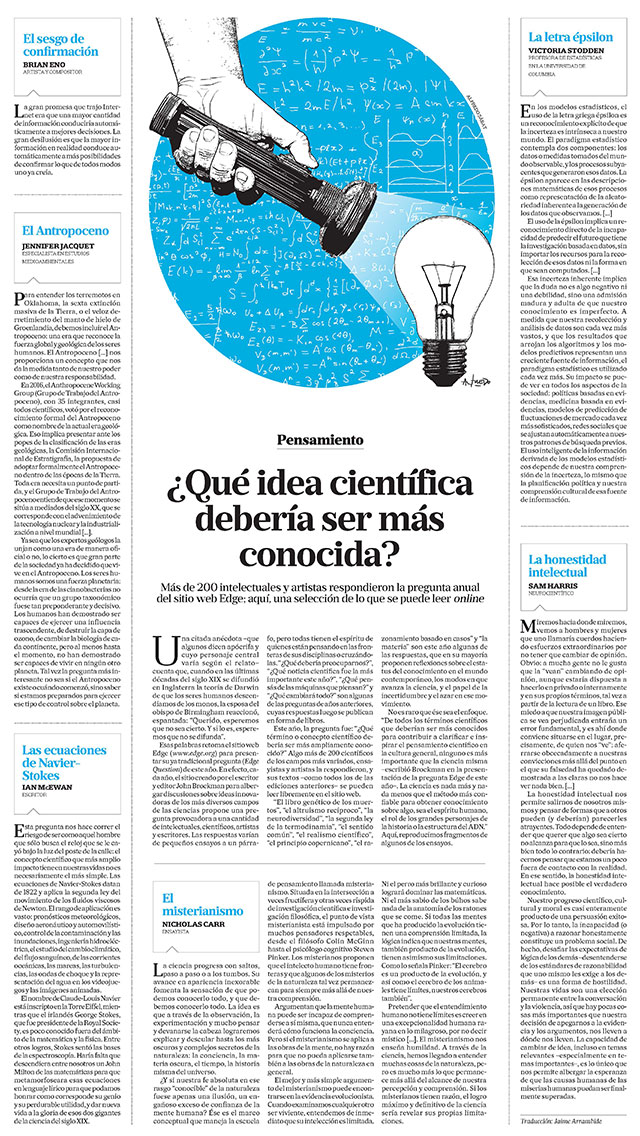News From:
One cited anecdote—which some say is apocryphal and whose central character varies according to the story—tells us that when, in the last decades of the nineteenth century, Darwin's theory that humans descended from monkeys spread in England, the wife of the bishop of Birmingham responded, shocked: "Dear, let's hope it is not true. And if it is, let's hope it does not spread."
Those words take up the Edge website to present its annual question ( Edge Question ) this year. Every year, writer and publisher John Brockman hosts discussions on innovative ideas from the most diverse fields of science and proposes a provocative question to a number of intellectuals, scientists, artists and writers. Answers vary from small essays to a paragraph, but all have the spirit of those who are thinking about the boundaries of their disciplines or crossing them. "What should we care about?" "What scientific news was the most important this year?" "What do you think about the machines you think?" "What will change everything?" These are some of the questions from previous years, whose answers are then published in the form of books.
This year, the question was: "What term or scientific concept should be most widely known?" More than 200 scientists from the most varied fields, essayists and artists responded, and their texts—like all previous editions—can be freely read on the website.
"The Genetic Book of the Dead," "Reciprocal Altruism," "Neurodiversity," "The Second Law of Thermodynamics," "Common Sense," "Scientific Realism," and "The Copernican Principle," are some of the answers this year, which mostly propose reflections on the status of knowledge in the contemporary world, the ways in which science advances, and the role of uncertainty and chance in that movement.
It is not uncommon for that to be the approach. "Of all the scientific terms that should be better known to help clarify and inspire scientific thinking in general culture, none is more important than 'science' itself," Brockman wrote in presenting this year's Edge question. "Science is nothing more nor less than the most reliable way of gaining knowledge about anything, whether it be the human spirit, the role of great figures in history, or the structure of DNA." Here, we reproduce excerpts from some of the essays.
Confirmation Bias (Brian Eno), The Anthropocene (Jennifer Jacquet), Navier-Stokes Equations (Ian McEwan), Mysterianism (Nicholas G. Carr), Epsilon (Victoria Stodden), Intellectual Honesty (Sam Harris)


